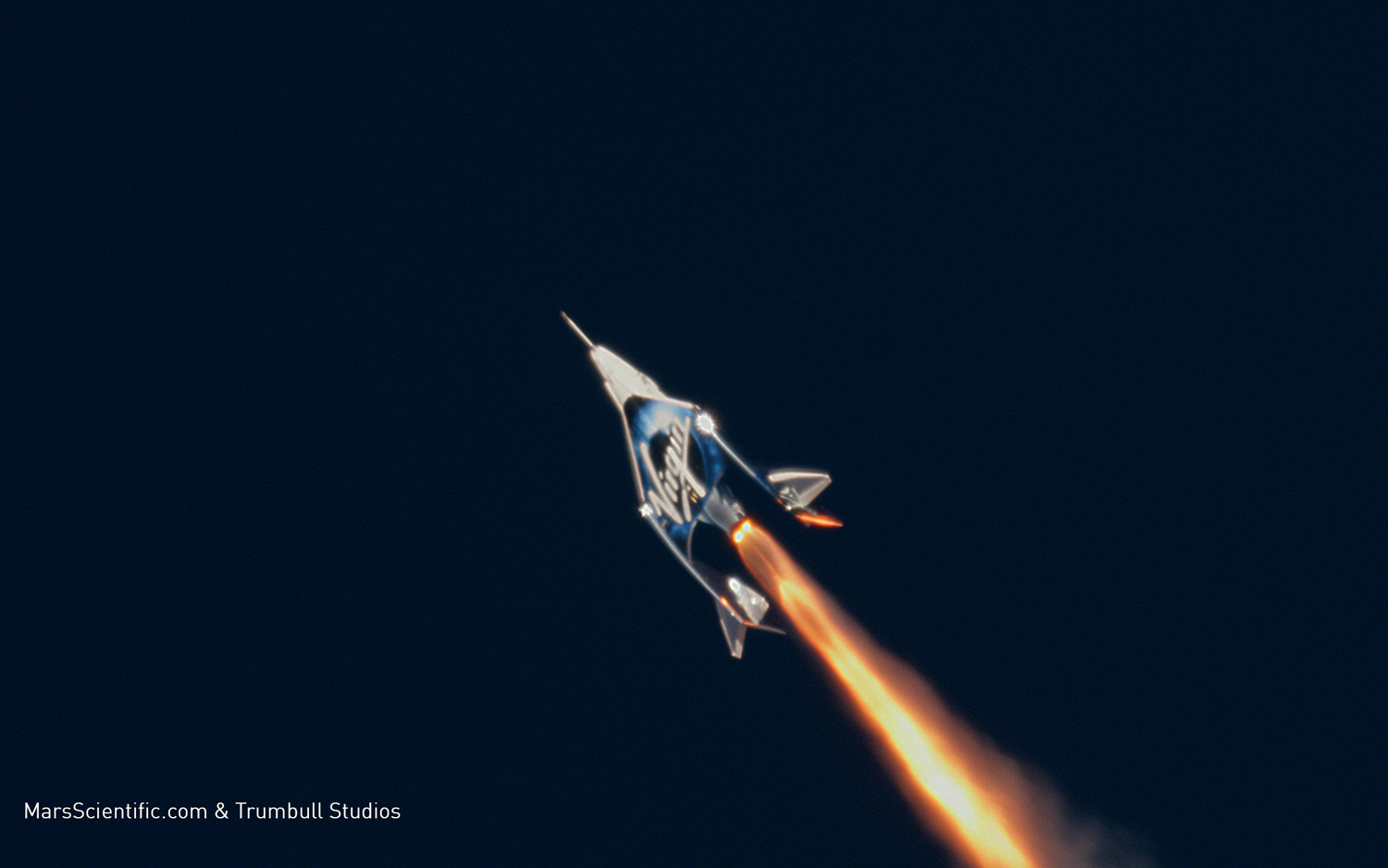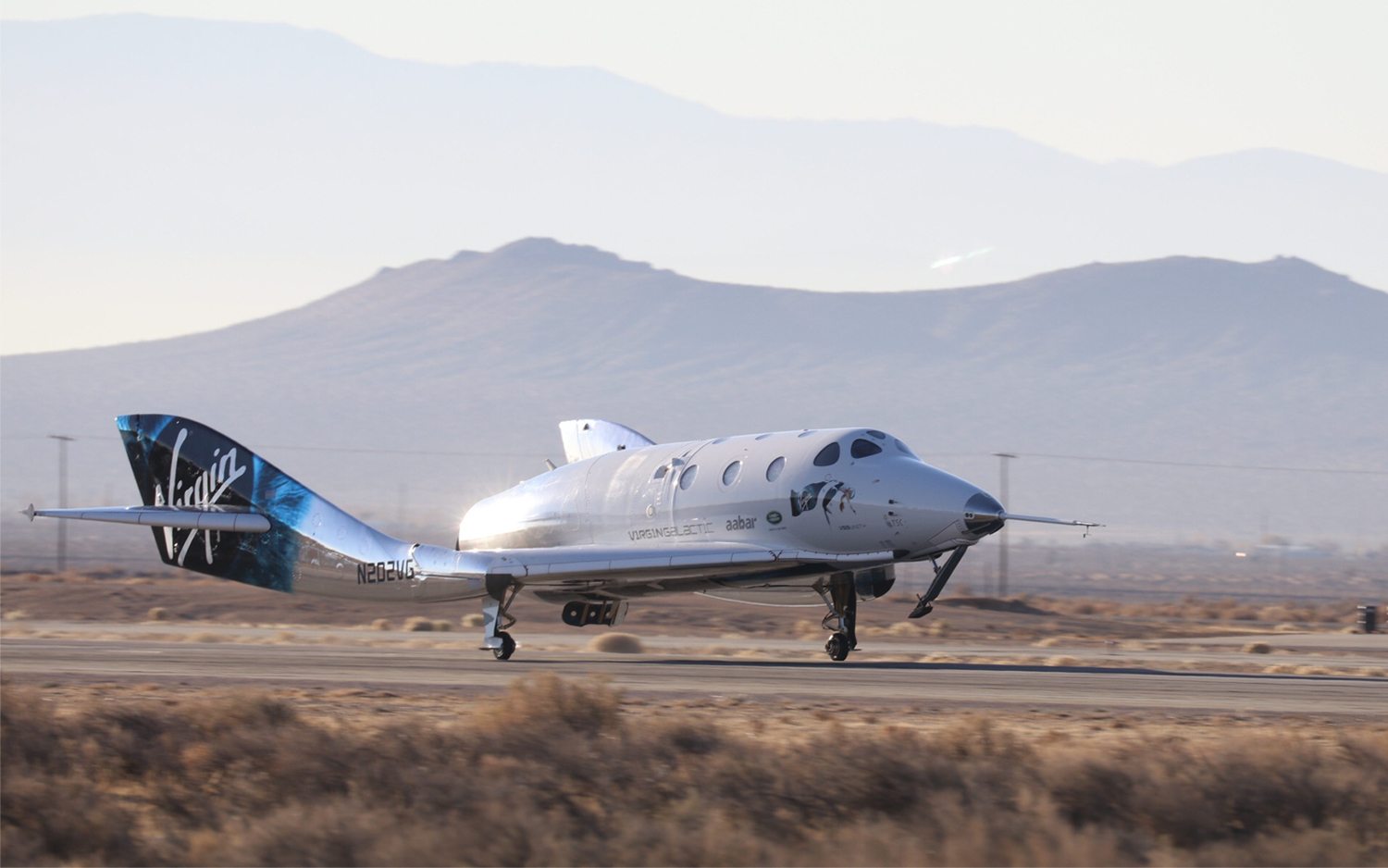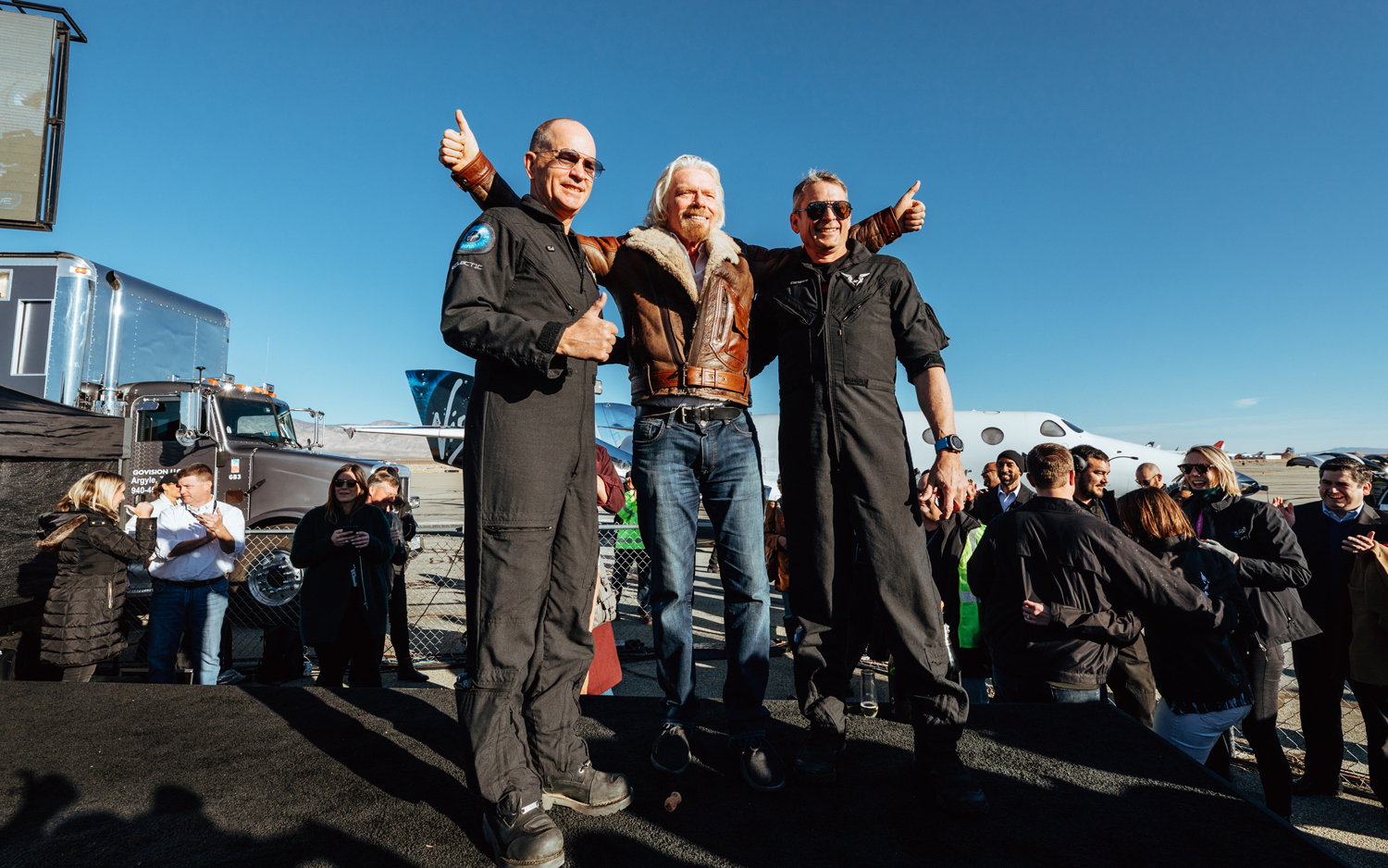Virgin Galactic has Officially Made It to Space
After years of testing, the SpaceShip Two has now made it over the space boundary.

Update - Dec. 14: The VVS Unity has successfully made it over the atmosphere/space border, and the article has been updated to reflect this and add additional information.
Virgin Galactic’s SpaceShip Two has successfully begun its fourth stage of testing, and has now reached space for the first time.

The spaceplane, named VSS Unity, has moved into the fourth part of its program, with margins for speed, heat and altitude being increased to the point that the craft was able to travel over the Kármán Line, the 100km (62-mile) high barrier where space is considered to officially begin.
The Unity was piloted by Mark Stucky and C.J. Sturckow, launching from and landing at the Mojave Air and Space Port in California. Having reached space during the flight, they are now entitled to a United States Astronaut Badge from the US' Federal Aviation Authority.
MORE: I Visited Facebook’s 'Privacy Shop' And They Still Don’t Get It
The flight also makes Virgin Galactic the world's second-ever commercial company to achieve spaceflight, the first being SpaceX. It is, however, the first crewed commercial passenger vehicle to reach space, and the first human spaceflight to be launched in the USA since the end of the Space Shuttle programme in 2011. Unity also carried four research payloads from the Nasa Flight Opportunities programme, the space agency’s partnership scheme with commercial space operators, making it the company's first revenue generating flight
The Thursday morning flight broke the company's previous altitude record (previously 32 miles, now 51.4), by firing its engine for a minute, reaching a speed of 2.9 times the speed of sound. However, Virgin Galactic says that the spaceplane still has potential for even greater performance, and these records could be surpassed again as testing continues.

Commenting upon the SpaceShip Two's landing, Virgin founder Richard Branson said "We started Virgin nearly 50 years ago dreaming big and loving a challenge. Today, as I stood among a truly remarkable group of people with our eyes on the stars, we saw our biggest dream and our toughest challenge to date fulfilled."
George Whitesides, CEO of Virgin Galactic and The SpaceShip Company, the business responsible for researching and building Virgin's spacecraft, said: “What we witnessed today is more compelling evidence that commercial space is set to become one of the twenty-first century’s defining industries."
"Today was a remarkable achievement brought about by the skill, dedication and support of our shareholders, staff, customers, partners and many other stakeholders. We extend our congratulations and thanks to each and every one of them.”
The Unity has now made four supersonic tests flights during 2018, as well as gliding and ground-based tests to ensure it was functioning correctly. The new series of tests are being conducted with the aim of further assessing the spaceplane’s handling and temperature regulation at speeds beyond the sound barrier, and from their performance figure out the ideal moment to stop accelerating and use existing momentum to continue the flight.
The SpaceShip Two has been around since 2009, replacing the SpaceShip One, which used a similar design, but was almost half the size of the current vessel. Unity is the second version of the Two built; the original, named Enterprise, crashed in October 2014 after its descent apparatus was activated too early, killing one pilot and injuring the other. Before this, Virgin Galactic had hoped to be taking passengers into space by 2015.
When it eventually becomes a commercial service, it’s designed to take six passengers on a short trip into the edges of space, with a brief weightless period, before bringing them back to Earth. You can reserve tickets for it now, but it does cost $250,000 per person.
Sign up to get the BEST of Tom's Guide direct to your inbox.
Get instant access to breaking news, the hottest reviews, great deals and helpful tips.

Richard is based in London, covering news, reviews and how-tos for phones, tablets, gaming, and whatever else people need advice on. Following on from his MA in Magazine Journalism at the University of Sheffield, he's also written for WIRED U.K., The Register and Creative Bloq. When not at work, he's likely thinking about how to brew the perfect cup of specialty coffee.
-
tangofoxtrotbravo They had a successful flight, but they did not officially hit space nor cross the Kármán Line. They hit an altitude of 51.4 miles and then said that's "good enough" based on "new research". It's like falling short on a field goal but still writing that you scored 3 points.Reply
